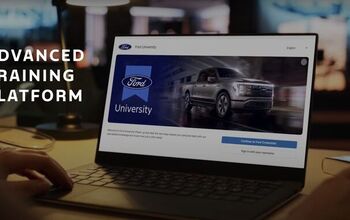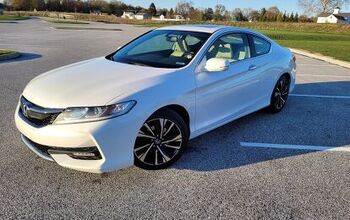TTAC News Round-up: North Korea's Good Times Threatened, Suzuki Cashes Out, and an EPA Backup

New U.S. sanctions might spell the end of the glorious, glorious era of North Korean vehicle production.
That, Suzuki asks for its winnings and staggers home, automakers are being slowed down by the EPA (and it’s all Volkswagen’s fault), Audi still loves diesels (and so do you, America!), and Volvo tries to spice up its life … after the break!
Requiem for the North Korean dream
When you’re riding high in the saddle, it’s hard to imagine the good times could one day come to an end.
That’s the situation in the quaint Communist dictatorship of North Korea, which faces the prospect of a downturn in domestic vehicle production thanks to U.S. sanctions, according to Automotive News:
The measures were passed after Pyongyang rattled the world in January by conducting a nuclear test, then launching a purported satellite that critics called a veiled missile test.
They would expand sanctions through a so-called secondary boycott, which penalizes businesses and individuals in third countries that have financial dealings with North Korea.
They should tighten the screws on Chinese companies that ship essential parts and components to North Korean auto factories and Chinese companies involved with joint ventures in the North, a recent report in South Korea’s Korean Joongang Daily said.
All of this would threaten production of the buses and dump trucks that have made North Korea world famous.
To quote Blade Runner, “The light that burns twice as bright burns for half as long.”
Suzuki moves on from a failed relationship
A fling with Volkswagen that didn’t go anywhere has Suzuki Motor Corp. burning the evidence to erase the memories.
In addition to selling $1.8 billion in convertible bonds, Suzuki will cancel a large chunk of the stock it bought back from Volkswagen after the two automakers consciously uncoupled, reports Bloomberg:
Suzuki will sell the bonds primarily to fund the 185 billion rupee ($2.8 billion) factory it’s building in India’s western Gujarat state, according to a statement filed Monday to the Tokyo stock exchange. The automaker also will cancel 70 million treasury shares, or 12.5 percent of outstanding stock, to boost returns for investors after ending its partnership with Volkswagen in September, the company said in separate statement.
Suzuki bought back millions of its own shares from Volkswagen last year.
EPA testing re-routes vehicle roll-outs into the slow lane
Thanks to a heightened focus on emissions testing in the wake of the Volkswagen diesel emissions scandal, the Environmental Protection Agency is inadvertently slowing the release of new products, reports Automotive News:
So far, only Volkswagen has been formally accused of deliberately manipulating emissions to fool lab tests. But top executives from more than half a dozen automakers say the scandal eroded the auto industry’s credibility in the eyes of European and U.S. environmental regulators.
“After the loss of the credibility between the industry altogether and the regulator, we see situations where the normal certification process which normally took four weeks all of the sudden takes three months, and you have to delay your launch for two months,” Daimler AG CEO Dieter Zetsche told reporters last week at the (Geneva Motor Show).
The increased EPA scrutiny on emissions goes across the board, and isn’t relegated solely to new diesel models.
Audi knows you want its diesels
Never mind the controversy. Audi knows that Americans are thirsty for diesel fuel!
The continuing demand for high-end German diesels from American consumers is something Audi will honor, the brand’s board member in charge of technical development said in Autocar:
Speaking after it was announced that Audi had sold more than 200,000 cars in the US for the first time in 2015, a doubling of sales since 2011, Knirsch said: “In particular, customers of our Q models are saying ‘give us diesel engines’.
“The message we have received is that some of them love our diesel engines. Clearly they want them to comply with regulations, but that issue is set aside now. The fact is they love 900-1000 km (610 miles) of driving range on the U.S. cycle.”
Audi’s operating profit dropped last year due to the ongoing diesel emissions scanda l, which saw a stop order placed on sales of vehicles equipped with a 3.0-liter diesel.
As a prize for diesel aficionados, Audi announced it will bring the technologically advanced SQ7 diesel SUV to U.S. shores. Under its hood is a 4.0-litre diesel V8 outfitted with an electric compressor.
Volvo cranks it up to “11”
The days spent wishing your Volvo wagon could hug a turn better are over.
Volvo is shedding its staid image and bowing to consumer demand by offering parts from its high-performance Polestar division on all of its models, the Swedish automaker has announced:
Polestar Performance Parts offers a wide range of extensively developed enhancements for the Volvo S60, V60, V40 and XC60 models to begin with, including chassis parts, wheels, exhaust, interior and exterior details and more …
The Polestar Performance Parts can be purchased as a Complete Package, including chassis parts, rims and tyres, intake and exhaust, as well as exterior and interior parts. All of these components will together create a more compelling driving experience, especially in combination with the Polestar Performance Optimization and can be bought in separate packages as well.
Because the parts are developed with Volvo looking over its shoulder like a stern but forgiving parent, existing factory warranties won’t be affected by installation of these parts.
[Images: North Korea (J.A. de Roo, CC BY-SA 3.0/Wikimedia); Volvo (© 2016 Alex Dykes/The Truth About Cars); EPA ( Flickr); Pyongyang traffic ((stephan)/Flickr)]

More by Steph Willems
Latest Car Reviews
Read moreLatest Product Reviews
Read moreRecent Comments
- W Conrad I'm not afraid of them, but they aren't needed for everyone or everywhere. Long haul and highway driving sure, but in the city, nope.
- Jalop1991 In a manner similar to PHEV being the correct answer, I declare RPVs to be the correct answer here.We're doing it with certain aircraft; why not with cars on the ground, using hardware and tools like Telsa's "FSD" or GM's "SuperCruise" as the base?Take the local Uber driver out of the car, and put him in a professional centralized environment from where he drives me around. The system and the individual car can have awareness as well as gates, but he's responsible for the driving.Put the tech into my car, and let me buy it as needed. I need someone else to drive me home; hit the button and voila, I've hired a driver for the moment. I don't want to drive 11 hours to my vacation spot; hire the remote pilot for that. When I get there, I have my car and he's still at his normal location, piloting cars for other people.The system would allow for driver rest period, like what's required for truckers, so I might end up with multiple people driving me to the coast. I don't care. And they don't have to be physically with me, therefore they can be way cheaper.Charge taxi-type per-mile rates. For long drives, offer per-trip rates. Offer subscriptions, including miles/hours. Whatever.(And for grins, dress the remote pilots all as Johnnie.)Start this out with big rigs. Take the trucker away from the long haul driving, and let him be there for emergencies and the short haul parts of the trip.And in a manner similar to PHEVs being discredited, I fully expect to be razzed for this brilliant idea (not unlike how Alan Kay wasn't recognized until many many years later for his Dynabook vision).
- B-BodyBuick84 Not afraid of AV's as I highly doubt they will ever be %100 viable for our roads. Stop-and-go downtown city or rush hour highway traffic? I can see that, but otherwise there's simply too many variables. Bad weather conditions, faded road lines or markings, reflective surfaces with glare, etc. There's also the issue of cultural norms. About a decade ago there was actually an online test called 'The Morality Machine' one could do online where you were in control of an AV and choose what action to take when a crash was inevitable. I think something like 2.5 million people across the world participated? For example, do you hit and most likely kill the elderly couple strolling across the crosswalk or crash the vehicle into a cement barrier and almost certainly cause the death of the vehicle occupants? What if it's a parent and child? In N. America 98% of people choose to hit the elderly couple and save themselves while in Asia, the exact opposite happened where 98% choose to hit the parent and child. Why? Cultural differences. Asia puts a lot of emphasis on respecting their elderly while N. America has a culture of 'save/ protect the children'. Are these AV's going to respect that culture? Is a VW Jetta or Buick Envision AV going to have different programming depending on whether it's sold in Canada or Taiwan? how's that going to effect legislation and legal battles when a crash inevitibly does happen? These are the true barriers to mass AV adoption, and in the 10 years since that test came out, there has been zero answers or progress on this matter. So no, I'm not afraid of AV's simply because with the exception of a few specific situations, most avenues are going to prove to be a dead-end for automakers.
- Mike Bradley Autonomous cars were developed in Silicon Valley. For new products there, the standard business plan is to put a barely-functioning product on the market right away and wait for the early-adopter customers to find the flaws. That's exactly what's happened. Detroit's plan is pretty much the opposite, but Detroit isn't developing this product. That's why dealers, for instance, haven't been trained in the cars.
- Dartman https://apnews.com/article/artificial-intelligence-fighter-jets-air-force-6a1100c96a73ca9b7f41cbd6a2753fdaAutonomous/Ai is here now. The question is implementation and acceptance.







































Comments
Join the conversation
I don't see any association with "good times" and North Korea. Their people live in a hellhole, and guess what, it's going to be even worse. As far as Suzuki building a factory in India, they recently burned a young woman alive there, I would boycott all of India for any and all purpose's. I know, nothing about automobiles.
Nazi Germany lasted 12 years? NK has been about 60-odd or 3 generations. They're truly indoctrinated. Sounds like they've got more of a production thing going than Cuba.